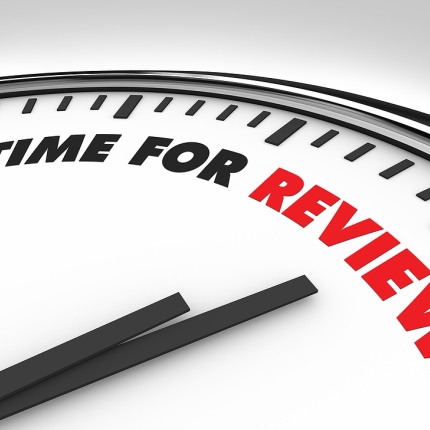Six Occasions When You Need To Hire A Pro To Do Your Taxes
 You can tell it’s tax season when the dining room table disappears beneath piles of year-end statements, tax documents, crumpled receipts and tears.
You can tell it’s tax season when the dining room table disappears beneath piles of year-end statements, tax documents, crumpled receipts and tears.
It’s unlikely the table will be cleared off in time to serve dinner. According to the IRS, it takes the average taxpayer 13 hours to prepare and file a tax return. Roughly half of that time is spent on record keeping, two hours on tax planning, four hours completing and submitting forms and one uncategorized hour we assume is spent griping and procrastinating.
Of course, your mileage will vary depending on the size of the piles, the complexity of your financial life and your familiarity with the IRS tax code. But you’re not alone if you doubt your ability to do the job correctly on your own.
Form 1040 Not-So-EZ scenarios
According to a new NerdWallet study of more than 1,600 taxpayers, nearly seven in 10 respondents fear making mistakes on their tax returns, with worries ranging from overpaying the IRS to being audited.
While there are some great online tax-preparation tools that enable DIYers to tackle this task efficiently and cheaply, sometimes life throws you into 1040 Not-So-EZ territory.
In situations like the ones below, hiring a professional tax preparer (look for designations such as CPA and EA, for enrolled agent) buys you not just peace of mind, but also helps avert future headaches — think underpayment penalties, late-filing fees or an audit — and identify tax-savings opportunities that are often overlooked by amateur tax-prep warriors who do battle just once a year.
Here are six scenarios in which to consider calling in expert reinforcements.
1. You Had Major Life Change In The Past Year
Marriage, divorce, having kids, adopting them, taking elderly relatives under your wing, receiving an inheritance — when life happens, new tax rules happen along with them. A tax pro can walk you through the consequences of adding or eliminating dependents and tease out some tax-saving strategies that may now be available to you.
2. You Own A Business, Work As A Contractor Or Are Self-Employed
According to IRS data, 30% of all returns filed are business returns. There are strict rules for deductions, expenses, dealing with debts and other tax laws related to being the boss. A once-a-year check-in with a CPA may not be enough, especially for taxpayers who need to pay estimated taxes throughout the year.
3. You’re Nervous About Starting To Itemize Your Return
Every taxpayer is entitled to lower his or her taxable income by taking the “standard deduction” (which ranges from $6,300 to $12,600 for 2015). You also have the choice to itemize your deductions, which may lower your tax liability even more. According to TurboTax, itemizing lowers the tax bill of one out of every four taxpayers. It could put hundreds of extra dollars in your pocket.
There’s a wide range of expenses that qualify as allowable deductions — things like home mortgage/equity loan interest, property taxes, state and city income taxes, student loan interest, charitable contributions, medical expenses and even losses incurred because of theft and natural disasters. The National Society of Accountants says hiring a professional to prepare an itemized Form 1040 with Schedule A and a state tax return costs an average of $273.
4. You’ve Got Investment Properties
The home you live in and your weekend pied-à-terre are indeed assets and are subject to their own set of IRS rules for deductions and credits. However, investment property (rentals, real estate used for business purposes) is a different beast in the eyes of the IRS. For example, as a landlord you can trim your tax bill by depreciating real estate costs. And when it comes time to sell, there is a way for taxpayers to postpone a painful capital gains whammy (with a “like-kind” or 1031 exchange) — but it’s an involved transaction. A skilled tax navigator can help you maneuver through it.
5. You’ve Had A Lot Of Investing Transactions
If 2015 was a particularly transaction-heavy year, a tax expert can help you navigate the details of tax-loss harvesting, correctly calculate capital gains and losses and deal with the 14 pages of instructions to fill out IRS Form 6251: Alternative Minimum Tax – Individuals. In particular, watch out if you’ve earned a fair amount of gains from foreign investments (think exchange-traded funds, mutual funds and even multinational companies) you held in a taxable account.
6. You Haven’t Filed Your Taxes In A While Or Think You May Face Some Tax Troubles
It’s better to deal head-on with issues than let them linger and rack up additional penalties and ill will from the IRS. Ask any tax professionals you’re considering hiring if they have dealt with situations like yours before and if they have the qualifications and training to represent you in any audit, collections or appeals proceedings before the IRS, should it come to that.
The Ghosts Of Tax Season Past And Future
While you may not need professional help preparing your return every year, if you’ve got a tax pro on the payroll now you should make the most of it. Ask for tax-saving strategies for situations you may face in the future and for a review of tax returns from your DIY days. Who knows — maybe your tax whiz will find enough money from deductions you overlooked on your messy dining room table to file an amended return and recoup enough to cover the tax-prep fee.
Source: USA Today


